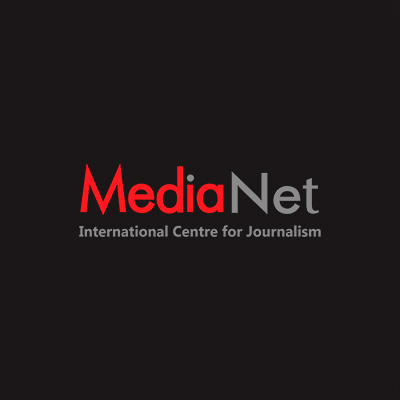
ANNUAL INTERNATIONAL JOURNAL OF PROJECT SYNDICATE WAS IN SECOND TIME PUBLISHED IN KAZAKHSTAN
[:en]In Kazakhstan, an influential international annual publication “Project Syndicate: What Carries the Year
2019? Great Disruption” has been published in Kazakh and Russian languages. The project was carried
out by the International Center of Journalism MediaNet and the first Central Asian factual resource
Factcheck.kz with the support of the Soros -Kazakhstan Foundation.
Among the authors of the Great Disruption are world politicians, experts and thinkers: former British
Prime Minister Gordon Brown, founder and chairman of the World Economic Forum Klaus Schwab, one
of Malaysian political leaders Anvar Ibrahim, chairman of Soros Fund Management and the Open Society
Foundations financier and philanthropist George Soros, head of Free Press Unlimited Leon Willems,
former Israeli Foreign Minister Shlomo Ben-Ami, Nobel Prize winner in economics Angus Diton.
In addition, you will find in the magazine an interview with Federica Mogherini, High Representative of
the European Union for Foreign Affairs and Security Policy.
The journal is published in Kazakhstan for the second time. Last year, the magazine was called Hope
against Wrath. Its authors tried to find features of the epoch that would talk about a rational balance in
the global economy and politics.
Due to the fact that the picture unfolded in 2018, and the trends became more obvious, publication was
called The Great Disruption, which can be translated as the “Великий Излом”. The world is experiencing
tectonic shifts and rebalancing of forces in the economy and geopolitics – this fact is, in real, recognized
in the pages of the journal, where possible solutions are also proposed.
The journal has a wide range of topics, but focuses around the core: how to overcome the global crisis of
separation, and whether the ideas of liberalism are devalued.
Among the questions raised by the authors were: With what populism is dangerous in practice, and how
to avoid a post-populist economic decline? What is the future of Europe? Which is better: structural
reforms or trade war? Is it possible to curb organized chaos in the Middle East? Why are the more
obvious social problems of the United States, including poverty, not recognized by the authorities? What
new approaches in the field of political and economic international cooperation should be applied in the
era of the Fourth Industrial Revolution?
The authors are trying to explain whether it is possible to ascertain the revival of fascism, what is the
identity crisis that engulfed the Central and East European countries, how to achieve democracy and
change after 60 years of hegemony of the same political force using Malaysia as an example, why not be
allowed to prevail the case of Hashoggi.
And finally, why is it so important to prevent a possible alliance between authoritarian regimes and
global IT giants that are rapidly monopolizing the global media market?
“The overall tone of the journal’s content does not pretend to arouse pre-apocalyptic sensations in
readers. We seriously hope that the cyclical nature of civilization will lead us all from the period of the
“Great Disruption” to a better world,” says ADIL JALILOV, Head of Factcheck.kz, Director of the Public
Foundation “International Center of Journalism MediaNet ”.
“In my opinion, the light motive of this issue, as in the past year, is optimism and faith in our ability to
change this world for the better, contrasting hate speech with the voice of mind. For this collection, we,
together with partners from MediaNet and Factcheck.kz, selected those articles that will be useful to
Kazakhstan readers to understand the events taking place both in the world and in our country,” says
Anton ARTEMYEV, Chairman of the Board of Soros -Kazakhstan Foundation.
For any additional questions, please contact: +7 (727) 2923033 (project coordinator Snezhana Tsoy, MCG
MediaNet).
